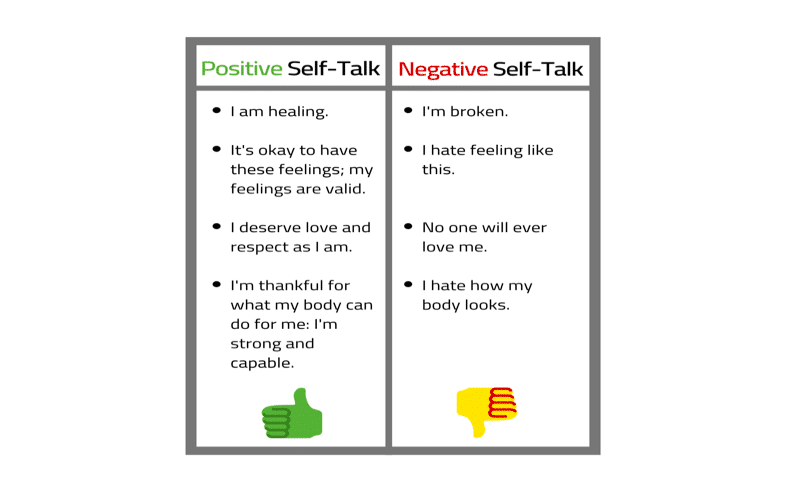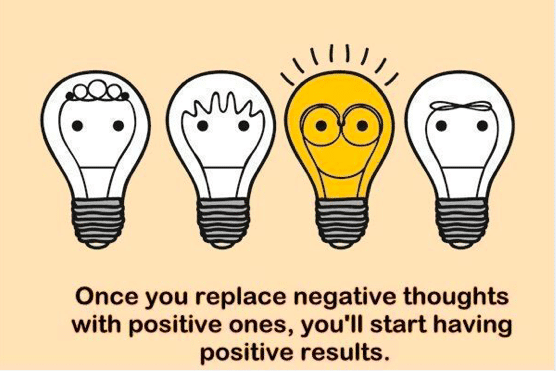
Journey to Wellness: Self
January 20, 2020
Managing your Mental Health and Overall Wellbeing During the COVID 19 Pandemic
March 24, 2020You may be familiar with the saying, “Actions speak louder than words;” But how often have you heard someone say, “Words speak louder than actions?” It is no surprise that words are powerful. Words can impact all areas of your life including your relationships, career, and overall well-being. Now don’t get me wrong, words can be positive and have the ability to make us feel empowered and boost our confidence. However, they can also cause us grief, sadness, and frustration.
Lets take a minute to think about a time in your life when someone made a promise and did not follow through, or, how about a time when someone you deeply cared about made a negative comment towards you? How did that make you feel?
Why is it that we become upset when others speak poorly of us or criticize us, yet we are our own biggest critics? How is it that we allow that voice in our heads to belittle us, judge us, and tell us that we are not good enough?
It is estimated that humans have approximately 60,000 to 80,000 thoughts per day, with a majority of them being negative. Negative self-talk can prevent us from achieving our goals and has been linked to depression, low self-esteem, and anxiety.
I can admit that my internal dialogue has dragged me down on numerous occasions. The unfortunate part is that often time’s people do not realize that they are even having these thoughts. Negative self-talk is not only our conscious thoughts but also includes unconscious beliefs and biases. Our actions are inspired by our thoughts, and if we can begin to make changes to the way we think, we can begin to change the actions we take.

Some common forms of negative self-talk include:
Mind reading: A distorted thought pattern in which an individual assumes that they know what others are thinking and feeling. People with this type of thinking tend to jump to conclusions.
Example: You are sitting in class and see two of your classmates whispering to one another. You instantly assume that they are gossiping about you.
Polarizing: Also known as “black or white” thinking. These individuals have an all or nothing mindset and tend to see things in extremes.
Example: “I am always wrong.” “I can never do anything right.”
Personalizing: These people tend to automatically blame themselves for something that may not even be in their control.
Example: Your partner is in a bad mood. You believe that it is your fault that they are unhappy because of something you may have said.
Filtering: Filtering refers to a tendency to disregard the positive aspects of a situation and exclusively focus on the negative details of the situation.
Example: You complete a presentation for your class and receive positive remarks from 90% of the class, while the remaining 10% provide suggestions for improvement. Rather than focusing on the 90%, you perseverate on the 10% and convince yourself that are not smart and will never succeed.
Here are a few suggestions that can help break the cycle of negative self talk for a healthier and happier you.
- Positive affirmations: Replace a negative thought with a positive affirmation! This can be anything from writing a positive word or phrase such as “I am beautiful” or “I trust myself” on a cue card or maybe even writing on a sticky note and placing it on your bathroom mirror.
- Challenge your negative thoughts: When you catch yourself having a negative thought, recognize that you are having the thought and say “STOP1” in your head or maybe even out loud, if appropriate. Challenge the thought by asking yourself “what evidence do I have that this thought is true?” Follow by replacing the negative thought with a positive one.
- Keep a thought record: A thought record is great for monitoring your thoughts throughout the day and allows you to reflect on these thoughts. Thought records commonly include: the situation that has caused the thought, the emotions/mood related to the situation, negative thoughts experienced from the situation, and evidence that supports the thought and evidence that does not support the thought.

Written By: Rubina Gill, MACP Candidate
rubina@okclinical.com





